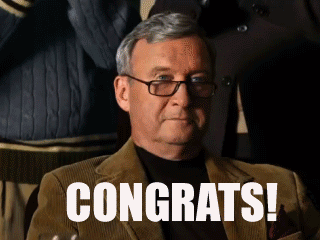Ugh, Internet was down for two whole days. A suburn-wide blackout where I live – thanks to the NBN installation, there’s been a lot of hiccups in the Internet connection lately. I thought I’d better post this up while the connection is still here.
- This is part of an on-going blog series called “Being a Professional Manga Artist in the West“. The Table of Contents is here.
- My comics-prose stories “Short Ghost Stories: The Man with the Axe in his Back” is available on Smashwords and Amazon. Read more at this link.

Part 4c: What is Copyright?
Disclaimer: I talk about publishing contracts, but this is not a definitive guide. I try and keep my information accurate, but if there are any corrections, please let me know. This is not legal advice – I have no authority to give out legal advice. If you’re offered a publishing contract and you’re unsure of the terms, please find a legal professional who can help you.
To understand how a copyright license works, you must first understand what a copyright is.
A copyright is a creator’s exclusive right to make copies of their own work, and then distribute and profit off it. Hence it’s called a “copy right” – it refers to the right to make copies (and to do various things with those copies). This legal concept of “copyright” is protected by law, and protection is automatic, the moment you commit pen to paper and start creating the work. However, this protection extends only to countries who are part of the Berne Convention, and when it comes to court of law, it varies from country to country.

To give you an example, here’s a photo of all the books I’ve had published over the years. You can buy most of these as a print book from a bookstore, or from Amazon, or as ebooks from various places. The copyright on these vary, because some of these are where I worked only as an illustrator, while others I own partial copyright. That’s the thing about publishing – you don’t always own everything you do, and if you sell off a license, you no longer own the right to sell or distribute your own work.
An easier way to talk about copyright would be through the books I’ve self-published.

Here’s a pic of three books I’ve self published – “Queenie Chan: Short Stories 2000-2010”, and two versions of “Short Ghost Stories: The Man with the Axe in his Back”.
All of these books are copyrighted to me. Regardless of when I wrote and drew the short stories in “Short Ghost Stories”, I had copyright protection on all of those stories from the moment they were created. I own the exclusive right to make copies of “Short Ghost Stories”, to distribute and then sell it. By “exclusive”, I mean only me, and no one else, has that right.
If you bought a print copy of “Short Ghost Stories” off Lulu, and then scanned the book into your computer and then distributed it, then you’ve just committed “copyright infringement”. Scanning or reprinting the book in small numbers don’t really count as “infringement”, but distributing it en masse certainly will. You can own the physical copy of “Short Ghost Stories” (which would include all the paper, ink, and binding) and the right to do whatever you want with that particular copy. This includes the right to give it to someone else, resell to a used book store, to cut, to glue, to scan and reprint, and you can even translate and use it as a study. You can also scan it, link it to a page and talk about it (to criticize, to compliment or to hate) – all that is under fair use agreement. However, the right to distribute en masse (ie. distribute to file sharing sites and release the links) the contents of “Short Ghost Stories” is a right you don’t have. Profiting off it is also a right that only the copyright holder has.
You can purchase individual copies of my print book or e-book. However, no matter how many copies you purchase of “Short Ghost Stories”, the right to make money off the contents of the book via mass distribution doesn’t belong to you. Only the original creator (me) has that right. Or, if I licensed that right to a publisher, then they have that right. If I licensed that right to you (for a sum of money), then you have that right.
Now that you understand a bit about copyright and what you’re selling to a publisher, let’s talk about the length of a publishing contract.
Part 4d: If I Sell an Exclusive License to a Publisher, How Long does that License Last For?
If you have a good agent/intellectual property attorney, then hopefully the exclusive license to publish your book in hardcover/paperback and e-book only. Hopefully, that term of the contract will be 5-10 years, rather than the full-term of copyright. If it’s not a specified time frame, then it’ll be for the full-term of the copyright, unless there is something else in the contract that mentions a particular situation for a full rights-reversion.
A full-term of copyright lasts until the death of the creator, plus 70 years – and this is constantly getting extended. If you sell the exclusive right to publish your story to a publisher without specifying a time frame or an ‘out of print’ clause, then they’ll keep those rights until 70+ years after your death… so not only you, but your children and your children’s children will be affected.
These days, specifying a ‘time frame’ in your contract is a great idea. It’s because with the advent of e-books, ‘out of print’ clausesare now losing their original intent. ‘Out of print’ clauses used to be the last chance for a writer to get their rights back from a publisher, but since e-books are in print forever, these clauses have lost all meaning (and thus, their teeth).
*****
Anyway, hopefully you got paid a decent amount. Next week, I’ll talk about getting paid an advance, and what that is. These posts are coming to a close, and there are only a few posts left, so I’ll make it quick.



